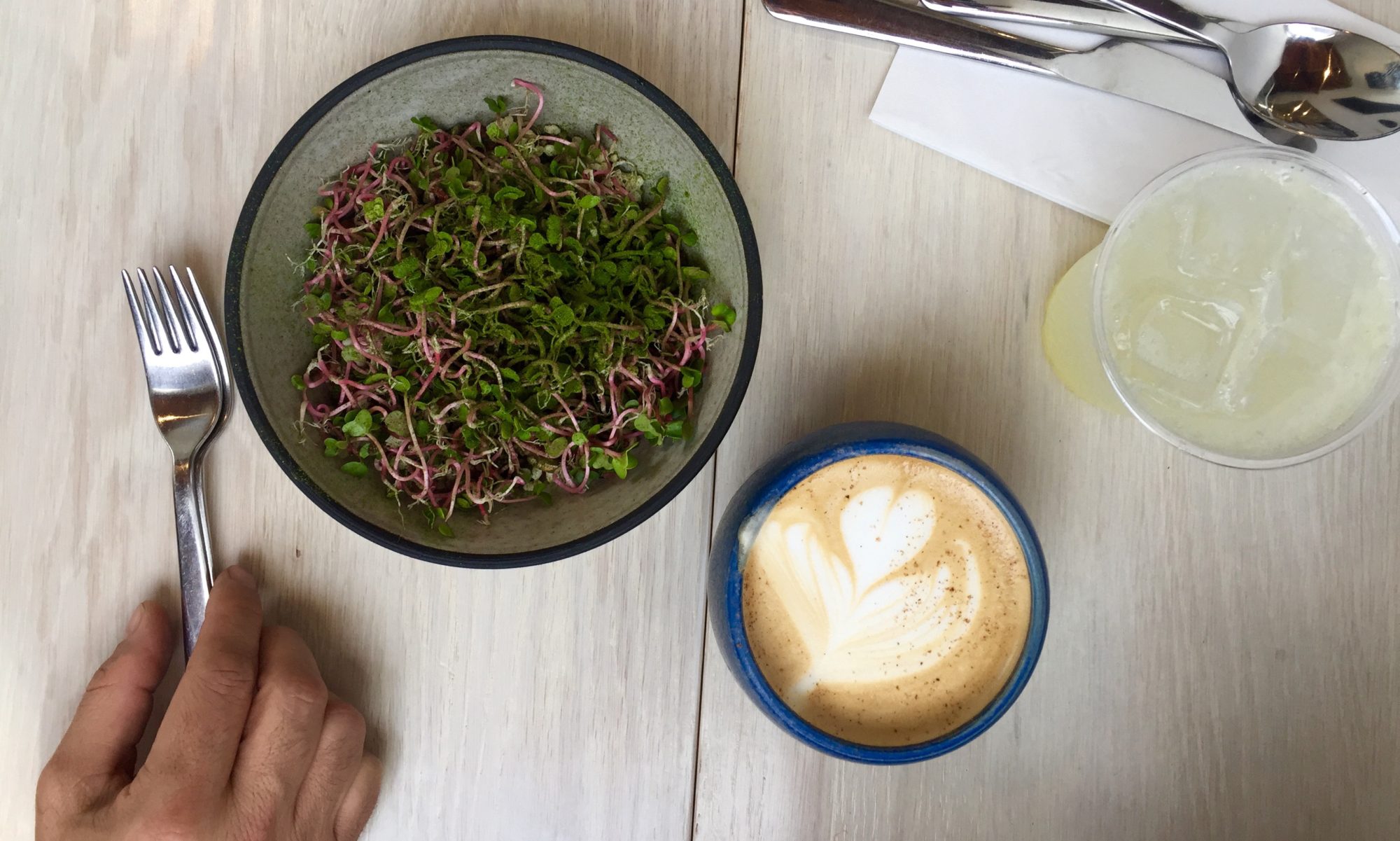While pursuing my undergrad and masters degree in writing, I consistently heard the advice that the life of a writer is one that should be avoided, if at all possible. “Do anything else if you can,” the teachers begged. But despite their warning to turn back from a life of hard work, no respect, and very little (if any) financial reward, I persevered.
Turns out, artists aren’t the only foolish ones with careers that don’t always pay off. According to Chip Brantley‘s book, “The Perfect Fruit: Good breeding, bad seeds and the hunt for the elusive Pluot,” fruit breeders are also part of a cursed bunch of men and women shackled with unfaltering passion, a blinding desire to create something, and a life of hard work that doesn’t necessarily offer any financial reward.
In fruit breeders, Brantley found a kindred spirit. It’s no wonder that a single piece of fruit, and the history of its breeder would eventually become a subject so compelling Brantley would dedicated a couple years of his life to tell the story. One bite of a ripe Flavor King plum was all it took to ignite an obsession in Brantley, a journalist and founder of Cookthink. In what could be described in movie terms as the cute meet, Brantley’s stone fruit encounter was so thrilling and exciting it changed the course of his life forever.
An obsession is born
Brantley’s research lead him to the fruit of his of his affections: a Flavor King Pluot. A relatively new hybrid created by a man named Floyd Zaiger, the writer tracks the history of the fruit through its creator’s lineage. From the fields of San Joaquin Valley, California, to the text books of early American fruit breeders, Brantley leads us through the meandering path of plant husbandry. He unravels the history of the hybrid and tells the stories of the growers responsible for creating obsession-worthy fruits. What results is a mostly compelling story of dedication, competition, invention, and an undying passion to create a perfect piece of fruit.
Brantley spends time in the field with an array of fruit breeders: an interesting bunch that have hybrids on their minds and an insular culture that keeps the group rather off the grid. Brantley navigates the world of the plant breeders and corporate fruit buyers as an inquisitive observer that would happily spend a full day wandering around a field to taste hundreds of juicy plums.
With the growth of interest in fruit that tastes good, Brantley shows readers why breeds such as the Dapple Dandy and the Flavor King are now just starting to make it on the buying public’s radar. And with the popularity of farmers markets growing by the week, Brantley is only able to guess at the affect of local consumer demand on stone fruit farmers.
Brantley’s “Pluot” is a must-read book for food lovers, plum obsessives, and any writer that has ever felt alone in the world of struggle. Thanks to Brantley’s research, it becomes clear that one can find artistry in just about any field of work. Take for example one fruit breeder’s desire to grow fruit. In his mission statement for growing fruit, he states that he hopes his plums will illicit a response equal to “a first kiss, a grandma’s smile, the last day of school, and outside fastballs over the right field fence.”
And maybe, if you’re a food blogger with a dream of someday making enough money to do nothing but write about food, consider this: it took Floyd Zaiger, the creator of the Flavor King (Brantley’s perfect fruit), twelve years before he saw any profit from his labors. The amount that he made after twelve years of planting, cross breeding, and creating an intricate system of tracking genetic crosses only resulted in a small check for just two hundred and fifty dollars.
Brantley’s research has a way of filtering into a food lover’s mind (mine) and affecting buying choices. After reading about the passion it takes to grow delicious plums, I couldn’t resist the eat-over-the-sink juicy plums at my local farmers market. As the season comes to a close I will enjoy every last, anti-oxidant rich bite.
According to Brantley, most Americans eat only one pound of plums a year. Since reading “The Perfect Fruit,” I am well on my way of breaking the record for average plum consumption.
The Perfect Fruit
Good breeding, bad seeds and the hunt for the elusive Pluot
Published by Bloomsbury

